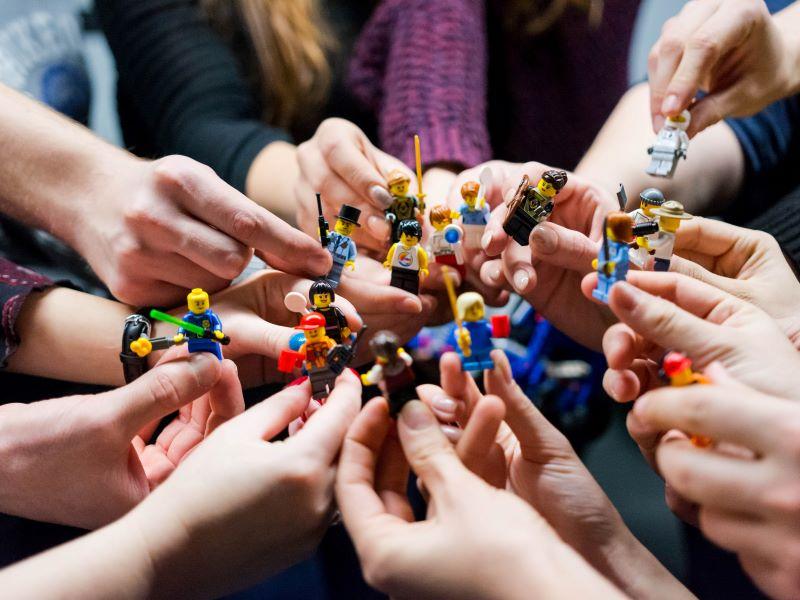
Students supporting educators: are you harnessing the talent of your own graduates?
Empowering students and recent graduates with meaningful roles within the university can have profound benefits for students and staff that extend beyond their core mission. For example, tasking students to provide digital learning support to educators can embed learner perspectives and transform an entire course portfolio for effective online engagement with students.
Through our student campus partners programme at the University of Exeter, we employed and trained a “home-grown” team of 69 recent graduates and 119 current students as digital learning developers (DLDs) and digital learning assistants (DLAs) respectively. Two years on from the launch of our programme, the roles have become permanent, the employability of our graduates has increased and a sound basis established for the digital enhancement of our programmes into the future.
- A guide to selecting the right ed-tech tools for your university
- Two ed-tech trends that educators should watch for
- Helping students to see the future career value of their work-integrated learning
What exactly did the DLDs and DLAs do?
- Shared digital expertise with educators to help move modules online within challenging timescales
- Dealt with queries and solutions to issues raised, for example, the choice of digital tools to support teaching
- Provided a bridge between student and staff perspectives on what constitutes engaging module design for accessible and inclusive learning experiences
- Produced “how to” guides for staff and students to share best practice in the use of new digital tools such as Mural, Mentimeter and Padlet
- Made recommendations where a greater variety of learning activities would make modules more accessible to a variety of students – or where there are so many activities that students might become overwhelmed
- Facilitated both asynchronous and synchronous learning experiences – including those that replaced immersive learning opportunities such as fieldwork and conferences
- Reviewed online study skills resources and identified areas where text-based advice could be replaced with more engaging videos, producing creative films incorporating music and animation
- Did all the above in a way that was accessible to students regardless of location, bandwidth and individual learning needs
How we set up the programme: tips and advice
- Setting up the roles required granular organisation to process applications, shortlist candidates and create interview panels. We received more than 1,000 applications for these roles. Asking applicants to produce a Padlet summarising their digital skills and experience provided a very useful visual guide to their suitability for the role.
- Decisions around operations will include the scope of the programme, reporting structure and where team members will be based.
- Our teams were embedded across all six colleges, so they could provide tailored advice and assistance to educators. The DLDs were employed as full-time staff working entirely from home. They had both a line manager (based in the central technology-enhanced learning team) and a task manager from their specific college who oversaw their day-to-day activities and workload. All team meetings were (and still are) carried out online. The DLAs, being full-time students, were employed on a casual basis for an hourly rate.
- Consider appointing staff to act as liaison. Within each college, every department was allocated a small team of DLDs and DLAs. Each team worked with an academic “digital lead” who held regular team meetings and coordinated support requests from staff in that department. The college task managers, digital leads and DLDs met weekly online to deal with urgent issues and share good practice.
- Be sure to factor in training. A crash course in digital pedagogy gave the DLDs an opportunity to experience, first-hand, the platforms and tools they would be expected to support academic staff in using.
What was their impact?
This unique undertaking provided the DLDs and DLAs with a formative and authentic employment experience, which helped them transition into careers after graduation at a difficult time. Simultaneously, educators benefitted from increased opportunities to incorporate the “student voice” and work directly with students as co-creators of curricula.
Students have consistently praised the quality of their online learning provision, specifically the variety of resources (such as videos, infographics and text), clear structuring of modules, helpful guidance on using new digital tools, inclusion of interactive elements and a good balance between activities and reading or listening to information.
According to one educator: “The DLDs have demonstrated their importance not just as a critical day-to-day resource but as strategically important colleagues in imagining, developing and delivering change in the ways we conceive of learning and assessment.” They have also been praised for supporting work outside of their main remit – for example, assisting with decolonisation initiatives, providing technical support for virtual field trips, and contributing to successful funding bids to support pedagogical research.
One DLA reported: “Being a digital learning assistant for the University of Exeter has been a unique opportunity to learn and grow. It was amazing to get involved in the creation of modules I would study.”
A DLD, about to apply for a permanent post in the education sector, remarked on how the role had boosted her CV: “I have collaborated with and supported academics in the development and quality assurance of over 100 online courses in multiple disciplines across postgraduate taught programmes. I have supported live online sessions, gathered and acted on student and staff feedback, and provided bespoke guidance to overcome challenges to online learning, including usability and accessibility.”
Three DLAs documented their student journey in a blog about the role of digital learning in improving the HE learning experience. The team were consummate professionals, providing an integrated and efficient service despite never meeting in person with each other, their managers or the educators they supported.
Where next?
In summary, the digital enhancement of learning materials benefits both educators and their students, while the DLDs and DLAs acquire skills that enhance their employability beyond their current roles. Their focus has shifted from emergency response to helping embed the lessons learned from 2020-21 into a sustainable, blended model of engagement. Full-time DLD positions have now been embedded into the institutional structure on a rolling two-year fixed-term basis. Thus, not only were we able to meet digital learning objectives over the course of the pandemic period, we did so in ways that have created lasting benefits for our entire university community.
Lisa Harris is director of digital learning at Exeter Business School and Caitlin Kight is manager of academic development and enhancement, both at the University of Exeter.
Lisa Harris is a panellist on the session “Workshop: Knowledge, training, change: Eliminate the barriers to edtech adoption across your campus” at Digital Universities Week UK, on 14-18 March 2022. Click here for the full agenda.
If you found this interesting and want advice and insight from academics and university staff delivered directly to your inbox each week, sign up for the THE Campus newsletter.




